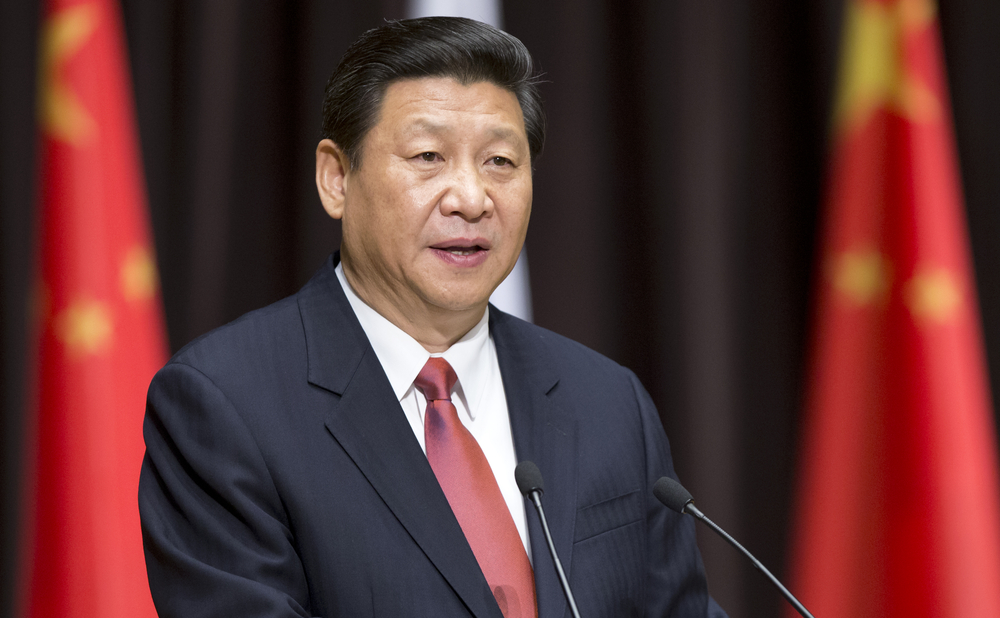Can China’s real estate market ride out the wobbles?
To be (optimistic) or not to be: that is the question, as a somewhat opaque property picture leaves China-watchers grasping at recent slight signs of good news

The data has been confusing to say the least. In February, new home prices in China climbed 10.4 percent compared to the same month last year—impressive by any standard. A closer look, however, would reveal that last year was a disaster for residential sales, meaning the base was rock bottom, and growth this February ranked the slowest—month-on-month—in nearly a year.
The picture could not be muddier. China’s property rollercoaster has left analysts clutching at every new data point and policy announcement out of Beijing: can the country’s real estate sector—and wider economy—ride out what looks to be an unavoidable economic storm?
Signs appear mixed, and so does reporting. When Beijing’s macroeconomic planning agency the National Reform and Development Council announced in April the easing of restrictions on hukou cards—a type of internal passport—some international media reported the measure akin to a new government stimulus for the floundering property market.
The move was nothing of the sort, both in terms of Beijing’s motivations and likely impact. On one hand, it would allow rural migrants to obtain hukou cards in cities where they work and buy property when they could not before.
But according to Andrew Polk, co-founder and partner of Trivium—a Beijing-based research firm on policy and economy in China—the measure, rather than short-term stimulus, represents long-term policy aimed at incentivizing urbanization in the forgotten cities of China, which register millions of residents but have seen many thousands leave for big hubs with the best jobs like Beijing, Shanghai and Shenzhen.
“I’m really sceptical about the property play. I think this is a structural thing that may have impacts over three to five years. I just don’t see it materially affecting the 2019 property market,” says Polk. “Market folks are looking for stimulus out of China so everything that you can even reasonably characterize as stimulus is characterized that way. They’re trying to will it into existence.”
March figures for China’s services industry represents a case in point, says Polk. The index rose to 54.8 at the end of the first quarter, unexpectedly well above the 54.3 recorded the previous month and safely over the 50-point mark that distinguishes growth from contraction. “It was one data point, and everyone decided that China is now out of the woods,” states Polk.
Without any clear trends emerging, the outlook for Chinese real estate therefore remains inconclusive, analysts say, even though positive signs do exist, both in terms of the property market and wider Chinese economy.
Developers have been pleasantly surprised by the state of the market, but pleasantly surprised because they thought it was going to be terrible. Now it’s slightly less terrible and that’s what everyone is getting excited about
The enduring U.S.-China trade war looked to be nearing resolution, Chinese markets have rallied after a dismal year in 2018, and the U.S. Federal Reserve and many other Western central banks continued to stall on interest rate hikes spurring capital flows to emerging markets. Brookfield Asset Management, Inc. of Canada was reported to be considering a USD2 billion buyout of commercial property in Shanghai in April, a deal that would rank among the biggest ever by a foreign buyer in China.
Amid the recent hype, longer term challenges remain. Overshadowing the whole economy, China faces huge structural challenges as it looks to cope with ever diminishing GDP growth rates—an unavoidable symptom of being a developed economy—termed the “new normal” among bureaucrats in Beijing. Still, the central government’s efforts to micromanage the economy continue, a key reason why China-watchers remain convinced a severe downturn in the all-important real estate sector seems unlikely. President Xi Jinping’s administration can rely on banks across the country to do their bidding.
Interest rates for new-home mortgages fell for the third straight month in February, down three basis points from the start of the year, which in turn appears to have prodded reluctant home-buyers back to the market. Developers received cash proceeds quicker during the first two months of this year, a sign of expanding home loan volumes. In turn, China’s 23 biggest developers including China Evergrande Group and Vanke saw new home sales rebound with growth of 26 percent in March.

Still many analysts remain cautious. This year’s “rebound” comes off a very low base, and after a similarly bright start to 2018, things quickly turned ugly. By the end of last year, many market-watchers in China had lowered forecasts for 2019 to marginal growth, the most optimistic, down to as low as a 10-percent decline in the case of Fitch Ratings—a sign of both the lack of optimism and level of uncertainty over what to expect.
Despite the recent trickle of good news, Fitch remained cautious on what to expect later this year. “We haven’t revised our forecasts yet,” says Chloe He, director of Corporate Rating at Fitch Ratings in Shanghai, speaking after Beijing announced easing hukou restrictions in early April.
More: Why China is dithering on a national property tax
Firmer optimism isn’t hard to find, however. Regina Wang, head of research and consultancy at Knight Frank in Shanghai, feels the residential market “is warming up and will continue this upward trend in terms of sales volume.” However, she is quick to add that prices are unlikely to surge during the remainder of 2019.
Rival realtor Savills sees the market in similar terms over the remainder of this year, said James MacDonald, a senior director and head of China research: “Signs for the first and second tier cities seem to be encouraging… with a pickup in transaction volumes and improving sentiment. Price growth, however, remains minimal.”
Polk shares he continues to tell his real estate clients in China not to get too excited too soon. “Developers have been pleasantly surprised by the state of the market, but pleasantly surprised because they thought it was going to be terrible. Now it’s slightly less terrible and that’s what everyone is getting excited about. The question is: are they right to be optimistic?”
This article appears in Issue No. 154 of PropertyGuru Property Report Magazine
Recommended
Why everyone is moving to Selangor and Johor: Malaysia’s real estate comeback
Malaysia’s upturn in fortunes is especially prevalent in secondary destinations such as Selangor and Johor
Penang’s silicon boom: How the US-China tech war is supercharging local real estate
Penang’s booming semiconductor industry has created ripples within the local real estate sector
New leader, new opportunities: How Hun Manet is shaking up Cambodia’s real estate game
Hun Manet is overseeing decent economic growth and widening access to the country’s real estate market for foreigners
Singapore embraces inclusive housing reforms amid resilient demand
The Lion City’s regulatory strength continues to exert appeal for international investors








